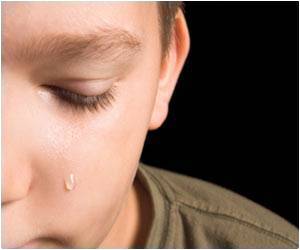Child abuse disrupts brain and may cause depression, finds recent study.

Using a specialised MRI scanning technique, "we identified microstructural disruption at certain locations of the white matter tracts of adolescents who experienced maltreatment during childhood," researcher Hao Huang told AFP.
White matter tracts or nerve fibres, comparable to computer network cables, connect the grey matter in the brain's different processing regions -- transmitting signals to ensure they "talk" with each other efficiently.
Nineteen adolescents who had suffered physical or sexual abuse before the age of 10 or witnessed domestic violence that lasted six months or longer, took part in the study, as well as a control group of 13 with no abuse history.
Those in the abused group were physically and mentally healthy at the time they were recruited at an average age of 16, and were not abusing alcohol or drugs at the time.
All the teenagers were followed at six-month intervals for up to five years.
Advertisement
Five of the 19 abuse victims developed depression later, compared to one in the control group, while four became substance abusers compared to one control teenager.
Advertisement
The adolescents exposed to childhood abuse as well as those who later developed depression had significantly lower FA values -- a measure of white matter efficiency.
"We believe that... brain scans might be helpful in identifying youngsters who are at high risk for developing these disorders and target them for early preventive intervention," said Huang.
Earlier studies had observed similar white matter changes in individuals with a history of abuse, but this was the first to find a link to later psychological problems.
Huang said the exact mechanism by which the white matter tracts were disrupted was not yet understood and required further investigation.
Source-AFP











